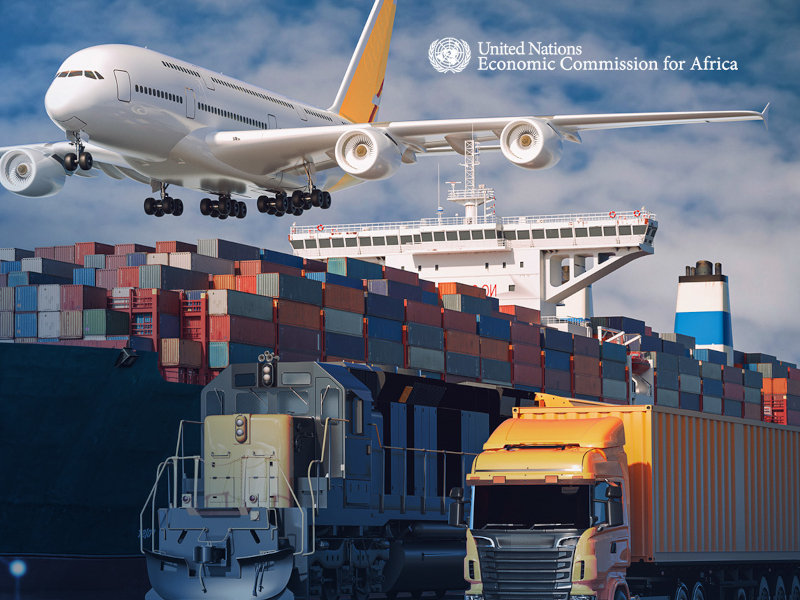Ezulwini, Eswatini, 29 October 2025 – The Kingdom of Eswatini today hosted an Ad Hoc Expert Group Meeting (AEGM) on Advancing Intra-Regional Trade in Southern Africa through Addressing Tariff and Non-Tariff Barriers (NTBs), highlighting the strategic importance of the African Continental Free Trade Area (AfCFTA), Africa’s most ambitious integration initiative, covering 1.4 billion people with a combined GDP of US$3.4 trillion.
Speaking on behalf of the Principal Secretary in the Ministry of Commerce, Industry and Trade, Amb. Melusi Masuku, Mr. Mluleki Dlamini, Director of MSMEs in the Ministry, underscored the importance of removing NTBs to unlock regional trade potential:
“The AfCFTA is expected to increase intra-African trade by up to 52 percent with the removal of tariffs and effective elimination of NTBs. Yet, intra-regional trade in Southern Africa remains modest at 21–23 percent, being held back by technical barriers, SPS measures, and complex customs procedures, among other impediments,” said Mr. Dlamini.
He emphasized that eliminating NTBs is essential for advancing Southern Africa’s industrialization agenda, boosting MSME participation, and expanding access to regional, continental, and global markets. He also acknowledged the progress under the Tripartite NTB Reporting, Monitoring, and Elimination Mechanism and the AfCFTA NTB Online Platform and called for the mutual recognition of standards and certification processes across member states.
“The region should embrace digital transformation through e-certificates of origin, digital customs platforms, and paperless border management to streamline trade processes and facilitate smoother trade,” Mr. Dlamini added.
He noted that Eswatini has already implemented key reforms, including, introduction of simplified trade regimes for informal cross-border traders, digitalization of customs processes under the Eswatini Revenue Authority and industrial policy reforms promoting regional value-chain participation in textiles, sugar, and agro-industry. “Eswatini stands ready to serve as a regional platform for policy dialogue and experimentation in trade facilitation and regulatory innovation,” Mr. Dlamini affirmed.
The AEGM also highlighted the critical role of MSMEs, particularly in agro-processing and cross-border trade and stressed the need to leverage development finance institutions to support trade facilitation and regional value-chain initiatives.
Ms. Eunice Kamwendo, Director of the Economic Commission for Africa (ECA) Subregional Office for Southern Africa (SRO-SA), highlighted the strategic importance of the removal of NTBs in boosting Southern Africa’s trade competitiveness. “Non-tariff barriers increase trade costs by 15 to 30 percent, disrupt regional value chains, and undermine tariff liberalization gains. Removing these barriers is essential to facilitate cost-effective trade, strengthen industrialization, and empower MSMEs, including those led by women and youth,” Ms. Kamwendo said.
She cited the East African Community (EAC) as a successful example, where coordinated measures such as digital tracking, harmonized insurance policies, and mutual recognition of inspections reduced cross-border transport times from weeks to days, demonstrating the tangible benefits of NTB reform.
The AEGM focused on:
-
reviewing the extent and impact of NTBs constraining Southern Africa’s intra-regional trade,
-
assessing competitiveness and export performance in priority sectors, including automotives, agro-processing, textiles, and mining-related manufacturing,
-
strengthening NTB reporting platforms across SADC, COMESA, EAC, and AfCFTA to ensure actionable reform
Ms. Kamwendo emphasized that NTB removal is a strategic industrial policy measure critical for job creation, MSME growth, inclusive development, and alignment with regional and continental agendas, including Agenda 2063 and the SADC Industrialization Strategy.
“ECA remains committed to providing technical and analytical support, facilitating evidence-based policy dialogue, strengthening institutional capacity, and partnering with member states and development banks to translate analysis into tangible development outcomes,” she said.
The AEGM’s recommendations will feed directly into the 31st Session of the Intergovernmental Committee of Senior Officials and Experts (ICSOE31), reinforcing Southern Africa’s path toward inclusive industrialization, deeper regional integration, and accelerated AfCFTA implementation.
Issued by:
The Sub-Regional Office for Southern Africa
UN Economic Commission for Africa (ECA)
P.O. Box 30647, Lusaka, Zambia.
Media Contacts:
Mr Bedson Nyoni – Senior Information Management Assistant
Tel: +260 211 228502/5 Ext. 21307
Email: nyonib@un.org
